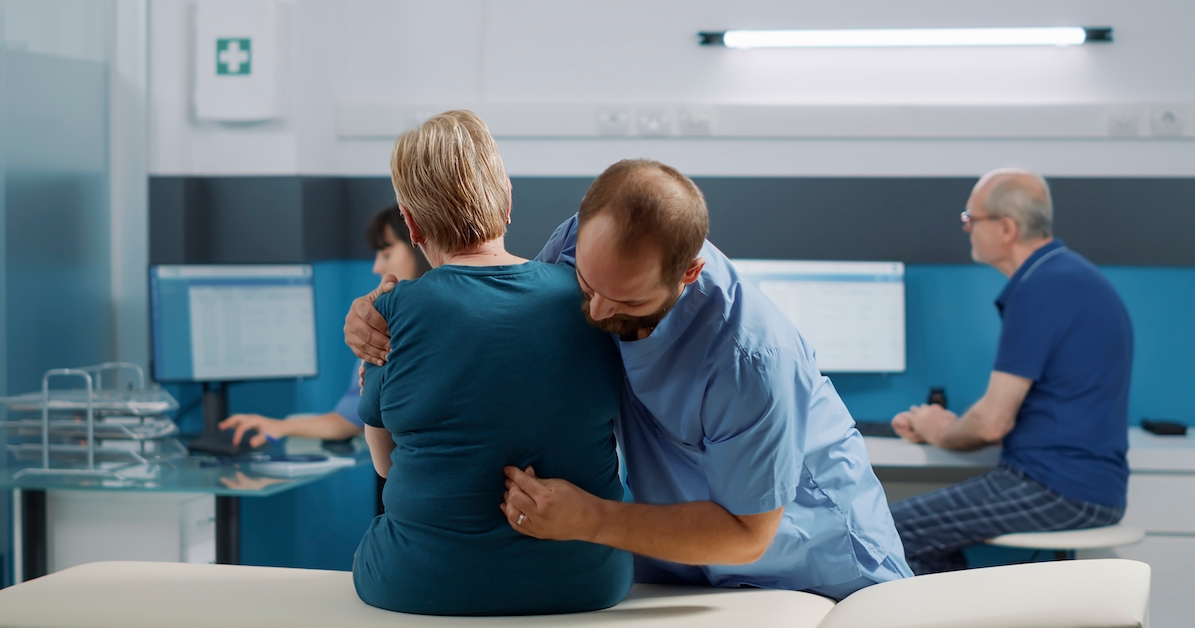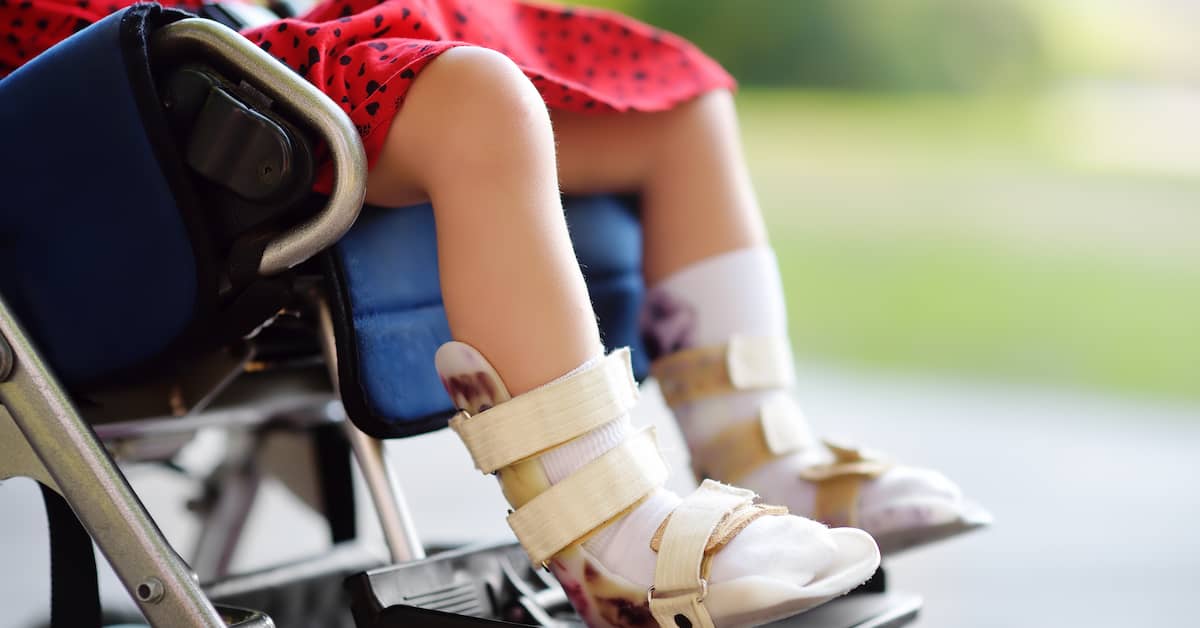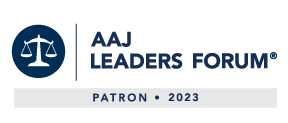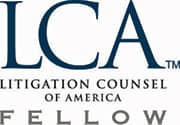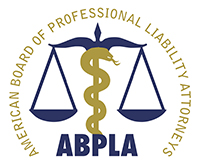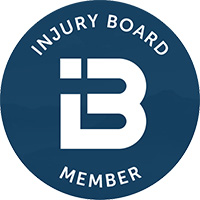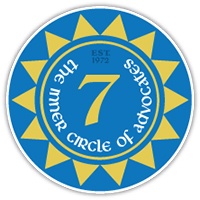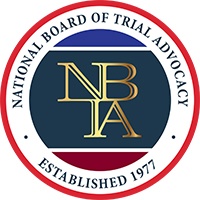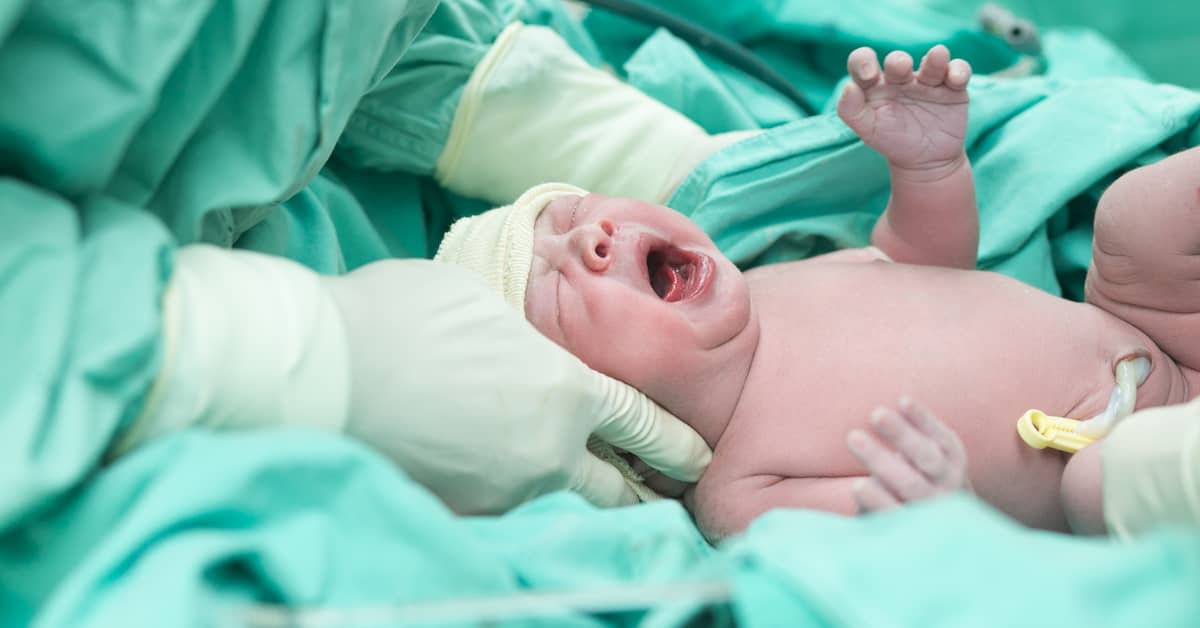
How Do You Know If Your Child Has Brain Damage?
The joy of welcoming a new life into the world can be quickly overshadowed when something goes wrong. Brain damage during birth can have lasting effects that influence every aspect of a child and their family’s life. The experienced team at Mandell, Boisclair & Mandell is committed to standing by families affected by these tragic occurrences.
Our attorneys understand the immense emotional and financial toll these injuries take. We are prepared to stand by your side, provide legal guidance and support, and help you get the justice and compensation your child and family need and deserve.
For a FREE and confidential case review with an experienced Providence child brain damage lawyer, call 401-273-8330 today. Mandell, Boisclair & Mandell serves families dealing with birth injury throughout Rhode Island.
Signs of Brain Damage in Newborns and Infants
There may be observable indications of birth injury immediately following delivery. These include:
Breathing Difficulties
If a newborn requires resuscitation, intubation, or has difficulty breathing, they may have suffered a birth injury. Breathing difficulties can be a response to a lack of oxygen during delivery or trauma sustained during birth, both of which can lead to brain injury.
Low APGAR Scores
The APGAR test, conducted at five-minute intervals after birth, assesses a baby’s Appearance, Pulse, Grimace, Activity, and Respiration. Low scores can be an indication of brain damage.
Admission to NICU
Admission to the Neonatal Intensive Care Unit (NICU) may signal underlying injuries or conditions that require immediate care. This could include brain damage resulting from a traumatic birth, infections, or other complications that can affect the brain.
Seizures/Tremors
Seizures or tremors in a newborn could be indicative of brain injury. They may be a sign of a serious condition like hypoxic-ischemic encephalopathy (HIE), where the brain doesn’t receive enough oxygen. This condition requires medical attention and proper diagnosis to treat and potentially mitigate further damage.
Feeding Difficulties
Struggles with feeding might be a sign of underlying neurological or developmental problems. Difficulty with sucking, swallowing, or digesting may signal brain damage or other medical conditions that require further assessment and intervention.
Abnormal Tone in Extremities
Being too stiff or too floppy in the arms or legs might be an indication of brain injury. These can be symptomatic of cerebral palsy and other neurological issues that need to be addressed through medical evaluation and therapy.
Recognizing these signs is the first step in the often complex process of identifying brain damage in infants. Once symptoms are present, a comprehensive medical examination involving imaging tests like CT scans, MRIs, and neurological assessments may be necessary to understand the full extent of the injury.
Signs of Brain Damage in Babies and Toddlers
Brain damage sustained during birth is not always immediately apparent. As children grow and develop, signs that may indicate brain damage include:
Head Size
A head that is much smaller than other babies might indicate microcephaly or other neurological issues. This could be a sign of underlying brain damage sustained during birth or even later.
Developmental Delays
Failure to reach age-appropriate milestones, such as crawling, walking, or speaking, can signal underlying damage to the brain. These delays may be subtle at first but become more noticeable as the child grows.
Abnormal Development
Physical or mental disabilities that become apparent as a child grows may indicate birth injury. Examples include difficulty with motor skills, learning disabilities, or behavioral issues.
Diagnosis of Cerebral Palsy
Cerebral palsy can result from injuries that occur during labor and delivery. It can present in various forms, affecting muscle control, coordination, tone, and movement. It may require a lifetime of special care.
Brain damage in babies and toddlers can have long-term impact, affecting every aspect of their lives. The financial burden of special schooling, continuous treatments, therapies, and at-home care, coupled with the emotional turmoil for both your child and family should not be yours to bear alone. If you suspect medical malpractice played a role in your child’s injury, call our Providence child brain damage lawyers today for a FREE case review to discuss your rights and learn more about your options.
Leading Causes of Head and Brain Damage During Birth
Brain damage during birth can occur due to a variety of reasons. Tragically, medical mistakes and negligence are often at the heart of these incidents. Some of the top causes of brain damage during birth include:
- Prolonged or Delayed Birth. Delaying a necessary C-section or mismanaging prolonged labor may cause undue stress to the infant’s brain.
- Oxygen Deprivation. Failure to respond to fetal distress can cause a lack of oxygen. Asphyxia is one of the leading causes of brain damage during birth.
- Failure to Monitor. Ignoring signs of fetal distress and not responding appropriately can result in preventable injuries to the baby.
- Improper Use of Birth Tools. Forceps or vacuum extractors can cause trauma to a baby’s head if used improperly.
- Medication Errors. Incorrect medication or dosage during labor can lead to complications.
When medical malpractice results in harm to your child, you may be entitled to seek compensation through legal action. Establishing that malpractice has taken place is not always cut and dry. Our lawyers and the medical experts we consult know how to identify all signs of errors and negligence. We will conduct an exhaustive investigation into your child’s injury to determine its cause and build a case that holds all responsible parties to full account.
Understanding Your Family’s Options
If your child has suffered a brain injury, the road to recovery can be both emotionally and financially taxing. Challenges are not limited to medical expenses, but often extend into a lifelong need for specialized care, therapy, and support. When your child’s injury was the result of someone else’s negligence, you are entitled to hold that person accountable and seek compensation for all related damages. The Providence infant brain damage lawyers at our firm have the experience, drive, and resources to help you seek every penny your family is due.
The journey following a child’s brain injury is multifaceted and requires a comprehensive approach that addresses medical, educational, legal, and emotional needs. Collaborating with experienced professionals in each of these areas ensures that every aspect of your child’s care is addressed, providing the best possible support for your entire family. We are dedicated to standing with you on this journey, offering not only legal expertise and tireless representation, but also compassionate understanding and guidance for the unique challenges you may face.
Medical complications that can arise from a brain injury at birth include:
- Cerebral Palsy (CP). CP is often caused by a severe brain injury during labor or delivery. This injury can result in motor impairment, loss of muscle control, poor coordination, and more.
- Cognitive Impairments. Brain injury during birth can lead to cognitive impairments, affecting a child’s learning abilities. This can impact memory, attention, problem-solving skills, and overall intellectual development.
- Epilepsy. A brain injury at birth can potentially lead to epilepsy, a neurological disorder characterized by recurrent seizures. Epilepsy can be fatal.
- Developmental Delays. Brain injuries can lead to developmental delays that impact a child’s growth and progress in several areas such as speech, social skills, and physical development.
- Vision and Hearing Loss. Depending on the severity and location of the brain injury, the child may suffer vision and hearing loss, impacting their ability to interpret and interact with their environment.
Death. Tragically, brain injury can result in death. Even when not a direct cause, complications from a brain injury can significantly shorten a child’s life expectancy.
Newborns cannot communicate their symptoms. It is up to medical professionals and parents to observe the baby and determine if a problem is present. However, because individual babies reach specific developmental milestones at different times, it can take several months or even years for the full impact of brain injury during birth to be realized.
Early signs of brain injury in infants include:
- Undersized head or skull
- Large forehead
- Malformed/twisted/misshapen spine
- Neck stiffness
- Abnormal/distorted facial features
- Abnormal eye movement
- Inability to move or focus eyes
- Seizures
- Excessive drooling
- Persistent, high-pitched crying (with arched back)
- Inability to be consoled
- Unusual irritability
- Difficulty or changes in nursing habits
- Difficulty or changes in sleep habits (unable to sleep laying down)
The inability to meet physical and motor developmental milestones may reveal brain injury as your child grows. Some developmental signs of brain damage could be:
- Inability to lift head independently by six months
- Lack of muscle tone
- Inability to roll over, sit up, stand, & walk at appropriate times
- Inability to bring hands together or to face
- Trouble getting dressed, tying shoes, & utilizing writing instruments
Other symptoms that may surface later include:
- Light sensitivity
- Tremors & muscle spasms
- Loss of balance & coordination
- Headaches
- Abnormal posture
- Extreme fatigue
- Sleep disorders
- Speech problems
- Vision problems
Brain injury may also present with mental, behavioral, or emotional symptoms such as:
- Spatial disorientation
- Difficulty concentrating
- Memory issues
- Trouble developing language & vocabulary
- Impulse control
- Extreme mood swings
If you notice symptoms of brain injury in your child, it is vital that you contact a physician right away. A qualified healthcare provider can provide you with an accurate diagnosis and suitable care plan. If you suspect that your child’s brain injury was the result of medical malpractice, Mandell, Boisclair & Mandell is here to review your claim and help you determine the best way forward.
A brain injury at birth can dramatically impact an infant’s life and present overwhelming challenges to the family. There are several resources available for families dealing with the fallout of a birth injury, such as:
- Medical Care Facilities. Rhode Island is home to exceptional medical care facilities specializing in pediatric care, such as Hasbro Children’s Hospital, offering treatment, therapy, and specialized care for infants with brain injuries.
- Therapy and Rehabilitation Services. Many organizations provide physical, occupational, speech, and behavioral therapy services to help children with brain injuries improve their skills and quality of life.
- Support Groups. Organizations like the Brain Injury Association of Rhode Island offer support groups where families can share experiences, gain insights, and find emotional support from others dealing with similar circumstances.
- Educational Services. The Rhode Island Department of Education offers Individualized Education Programs (IEPs) and other resources to ensure children with disabilities resulting from birth injuries receive the necessary educational support.
- Financial Aid Programs. Several financial aid programs, like Supplemental Security Income (SSI) and Katie Beckett, are available to help cover medical costs and therapy expenses for children with disabilities.
- Home Care Services. Various organizations provide home care services, helping families manage the daily care needs of a child with a brain injury.
Families dealing with the consequences of birth injuries are not alone. There are many resources available to help manage the physical, emotional, and financial challenges that can accompany an infant’s brain injury. However, finding and utilizing these resources can be complex. Our knowledgeable Providence birth injury attorneys are here to provide guidance and support.
Our Providence Infant Brain Damage Lawyers Are Here to Help
The infant birth damage lawyers at our Providence office have decades of experience helping families seek justice following traumatic birth events. If you believe your child’s injury was the result of medical negligence, contact us today to schedule a cost-and-obligation-free review of your case. We fight for families dealing with childhood brain damage throughout Rhode Island.

